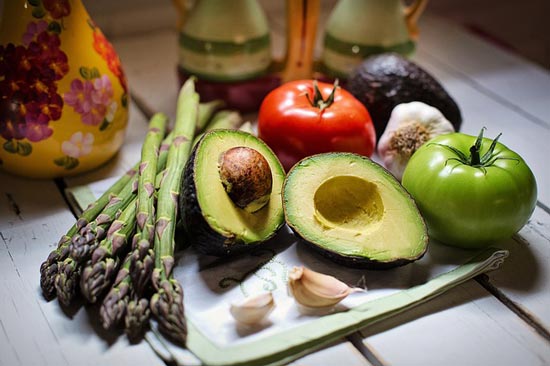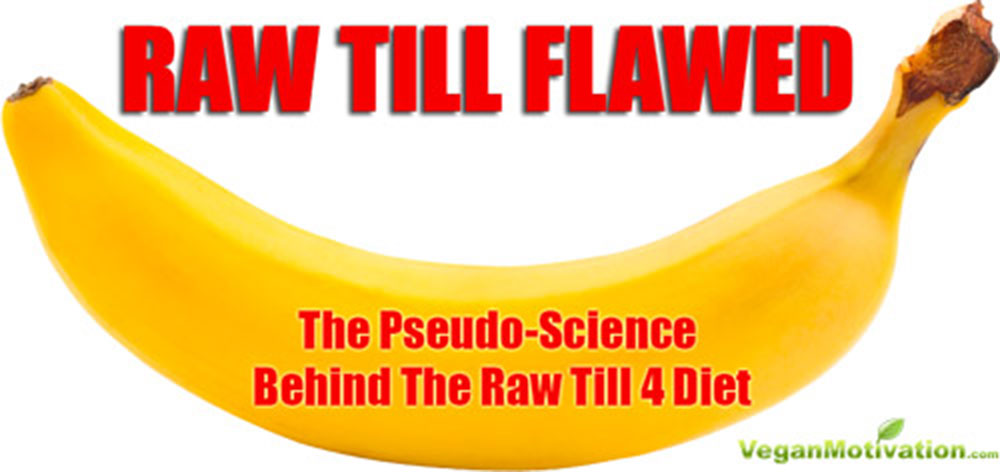Scientific research shows that plant-based diets are associated with better health and lower disease outcomes. [1]
However, while your doctor will advocate more fruits and vegetables, they are unlikely to recommend a vegan diet. Vegetarian or pescatarian, maybe, but not vegan.
+ For the differences on these diets, read this post after this one.
Even when a doctor is aware of the benefits of a plant-based diet, they know that moderation is a much easier easier sell to a patient.
Public opinion is that a fully plant-based (vegan) diet is extreme. People want to be healthier but still want to eat some meat and dairy products; thus the emergence of the reducetarian movement.
And some still misguidedly believe a whole foods plant-based diet to be unhealthy, to be lacking in essential nutrients; even though thousands of people all over the world on meat and dairy based diets are diagnosed with nutritional deficiencies every day.
But forget about public opinion. What do the leading health organizations say about vegan diets?
I've read a number of blog and Facebook posts by vegans championing statements from health organizations that refer to “vegetarian diets”. But to me this is pointless, as a vegetarian diet generally includes dairy, and sometimes eggs.
Moreover, the majority of health organizations have endorsed vegetarian diets as healthy since the 70s; it's not something new.
So, in my list (below), I have looked at statements specifically on “vegan diets”, except for the last two, which I have purposely labeled for clarity.
For the record, where the word “vegan” is used, they are referring to a whole foods, plant-based diet.
Personally, I'd rather they didn't use the word “vegan”; because as we know a vegan diet could mean a diet of chips, cola and donuts. But that's the label people associate with those who don't eat meat and dairy, so we're stuck with it for now.
Is Being Vegan Healthy? In the Words of Official Nutritional Organizations

1. Academy of Nutrition and Dietetics (US)
It is the position of the Academy of Nutrition and Dietetics that appropriately planned vegetarian, including vegan, diets are healthful, nutritionally adequate, and may provide health benefits for the prevention and treatment of certain diseases.
These diets are appropriate for all stages of the life cycle, including pregnancy, lactation, infancy, childhood, adolescence, older adulthood, and for athletes.
Plant-based diets are more environmentally sustainable than diets rich in animal products because they use fewer natural resources and are associated with much less environmental damage.
Vegetarians and vegans are at reduced risk of certain health conditions, including ischemic heart disease, type 2 diabetes, hypertension, certain types of cancer, and obesity.
Low intake of saturated fat and high intakes of vegetables, fruits, whole grains, legumes, soy products, nuts, and seeds (all rich in fiber and phytochemicals) are characteristics of vegetarian and vegan diets that produce lower total and low-density lipoprotein cholesterol levels and better serum glucose control. These factors contribute to reduction of chronic disease.[2]
2. Dietitians of Canada
Anyone can follow a vegan diet – from children to teens to older adults. It’s even healthy for pregnant or nursing mothers.
A well-planned vegan diet is high in fibre, vitamins and antioxidants. Plus, it’s low in saturated fat and cholesterol. This healthy combination helps protect against chronic diseases.
Vegans have lower rates of heart disease, diabetes and certain types of cancer than non-vegans. Vegans also have lower blood pressure levels than both meat-eaters and vegetarians and are less likely to be overweight. [3]
3. The British Nutrition Foundation
Well-planned, balanced vegetarian or vegan diet can be nutritionally adequate, although more extreme diets, such as strict macrobiotic and raw food diets, are often low in energy and a range of micronutrients, making them wholly inadequate and inappropriate for children.
Weaning onto a vegetarian diet follows the same principles as weaning onto an omnivorous diet, although care must be taken to ensure that a vegan diet is sufficiently energy and nutrient-dense for children.
Studies of UK vegetarian and vegan children have revealed that their growth and development are within the normal range. [4]
4. National Health Service (UK)
With good planning and an understanding of what makes up a healthy, balanced vegan diet, you can get all the nutrients your body needs. [5]
5. British Dietitians Association
For those who choose to follow a vegan lifestyle, it is possible to enjoy well-planned diets that can support healthy living in people of all ages, and during pregnancy and breastfeeding. Good nutritional planning includes appropriate use of fortified foods and supplementation. With the above statistics in mind, it has never been more important for dietitians to be pioneers in plant-based diets, ensuring nutritional adequacy for anyone wanting to increase their intake of plant-based foods. [6]
6. British Diabetic Association
It is possible to follow a well-planned, plant-based, vegan-friendly diet that supports healthy living in people of all ages, and during pregnancy and breastfeeding. [7]
7. The Dietitians Association of Australia
Vegan diets are a type of vegetarian diet, where only plant-based foods are eaten. They differ to other vegetarian diets in that no animal products are usually consumed or used. Despite these restrictions, with good planning it is still possible to obtain all the nutrients required for good health on a vegan diet.
The Dietitians Association of Australia highlights four nutrients vegans should be aware of:
Iron: “can get enough through plant foods”. B12: eat fortified foods or take a supplement. Calcium: select from a range of “good plant sources of calcium”. Omega-3 fats: select from plant sources or supplement with “vegan marine omega-3 fat supplements”. [8]
8. The Mayo Clinic
A plant-based diet, which emphasizes fruits, vegetables, grains, beans, legumes and nuts, is rich in fiber, vitamins and other nutrients. And people who don't eat meat — vegetarians — generally eat fewer calories and less fat, weigh less, and have a lower risk of heart disease than non-vegetarians do.
Even reducing meat intake has a protective effect. Research shows that people who eat red meat are at an increased risk of death from heart disease, stroke or diabetes. Processed meats also increase the risk of death from these diseases. And what you don't eat can also harm your health. Diets low in nuts, seeds, seafood, fruits and vegetables also increase the risk of death. [9]
9. Harvard Medical School
Meat Reduction/Vegetarianism
Historically, research into vegetarianism focused mainly on potential nutritional deficiencies, but in recent years, the pendulum has swung the other way and studies are confirming the health benefits of meat-free eating.
Nowadays, plant-based eating is recognized as not only nutritionally sufficient but also as a way to reduce the risk for many chronic illnesses. [10]
Harvard does not refer specifically to vegan diets but rather generally talks about vegetarian and “cutting meat out”. Indeed, Dr Walter Willett, professor of epidemiology and nutrition at Harvard Medical School, has stated that the benefits of a plant-based diet have been vastly underestimated.
Figures from Harvard suggest that at least 200,000 lives could be saved each year if people cut meat from their diets.
Dr Wilett states:
We have just been doing some calculations looking at the question of how much could we reduce mortality shifting towards a healthy, more plant based diet, not necessarily totally vegan, and our estimates are about one third of deaths could be prevented. [11]
10. United States Department of Agriculture
General Statement on Increasing Plant-Foods Intake
The major findings regarding sustainable diets were that a diet higher in plant-based foods, such as vegetables, fruits, whole grains, legumes, nuts, and seeds, and lower in calories and animal-based foods is more health promoting and is associated with less environmental impact than is the current U.S. diet.[12]
Why Do People Think Vegan is Unhealthy?
Despite the overwhelming evidence supporting the health benefits of a whole foods plant-based diet, there are several reasons why people may perceive veganism as unhealthy:
- Misinformation: Misconceptions or lack of accurate information about veganism may lead individuals to believe it is inadequate or deficient in essential nutrients.
- Cultural and Social Influences: Cultural norms and societal perceptions may associate meat and animal products with strength, vitality, and tradition, leading some to view vegan diets as unconventional or inferior.
- Concerns About Nutrient Deficiencies: Some people worry that vegan diets may not provide sufficient levels of certain nutrients such as protein, calcium, iron, vitamin B12, and omega-3 fatty acids, despite evidence suggesting otherwise.
- Limited Understanding of Nutrition: Many individuals may have a limited understanding of nutrition and believe that animal products are necessary for optimal health, overlooking the abundance of nutrients found in plant-based foods.
- Prevalence of Vegan Junk Food: The availability of processed vegan products high in sugar, salt, and unhealthy fats may contribute to the perception that vegan diets are inherently unhealthy.
- Sensationalized Media Coverage: Media outlets may sensationalize isolated incidents of nutrient deficiencies or health concerns in vegan individuals, perpetuating the notion that veganism is inherently risky.
- Social Media Bias: Social media platforms may amplify biased or misleading information about veganism, leading to the dissemination of false beliefs or stereotypes. Influencers or celebrities promoting fad diets or pseudoscientific claims may further perpetuate negative perceptions of veganism.
- Trolling and Hate Influence: Online trolling and hate speech targeting vegans can create a hostile environment that discourages individuals from adopting or openly supporting vegan lifestyles. Such negativity can reinforce the idea that veganism is extreme, impractical, or unhealthy.
- Personal Bias or Beliefs: Some individuals may hold personal biases or beliefs against veganism due to philosophical, ethical, or cultural reasons, which can influence their perceptions of its healthfulness.
Overall, overcoming these misconceptions requires education, access to accurate information, and a shift in societal attitudes towards plant-based diets as viable and nutritious options for optimal health.
A Final Word
The positions outlined by the major health authorities represent a consensus grounded in scientific and medical evidence, devoid of bias.
Their stance asserts that adopting a vegan diet, specifically a whole foods plant-based approach excluding dairy, meat, and minimizing processed foods, not only promotes overall health but also significantly reduces the likelihood of developing various chronic conditions. These include but are not limited to heart disease, type 2 diabetes, hypertension, certain cancers, and obesity.
——————-
Reference Information:
All reference sources are linked by number (in brackets) at the end of each section. Simply click the numbered link to visit the source page.

![Vegan Vs. Vegetarian – What's the Difference [And is There Beef?] vegan vs vegetarian](https://www.theplantway.com/wp-content/uploads/2015/01/vegan-vs-vegetarian.jpg)


A lot of these links are outdated and link to 404 error pages. Could you please update the links.
Feb 28, 2024 at 12:35 am
All fixed and some new content added. Thanks for letting me know!
Mar 05, 2024 at 6:16 pm